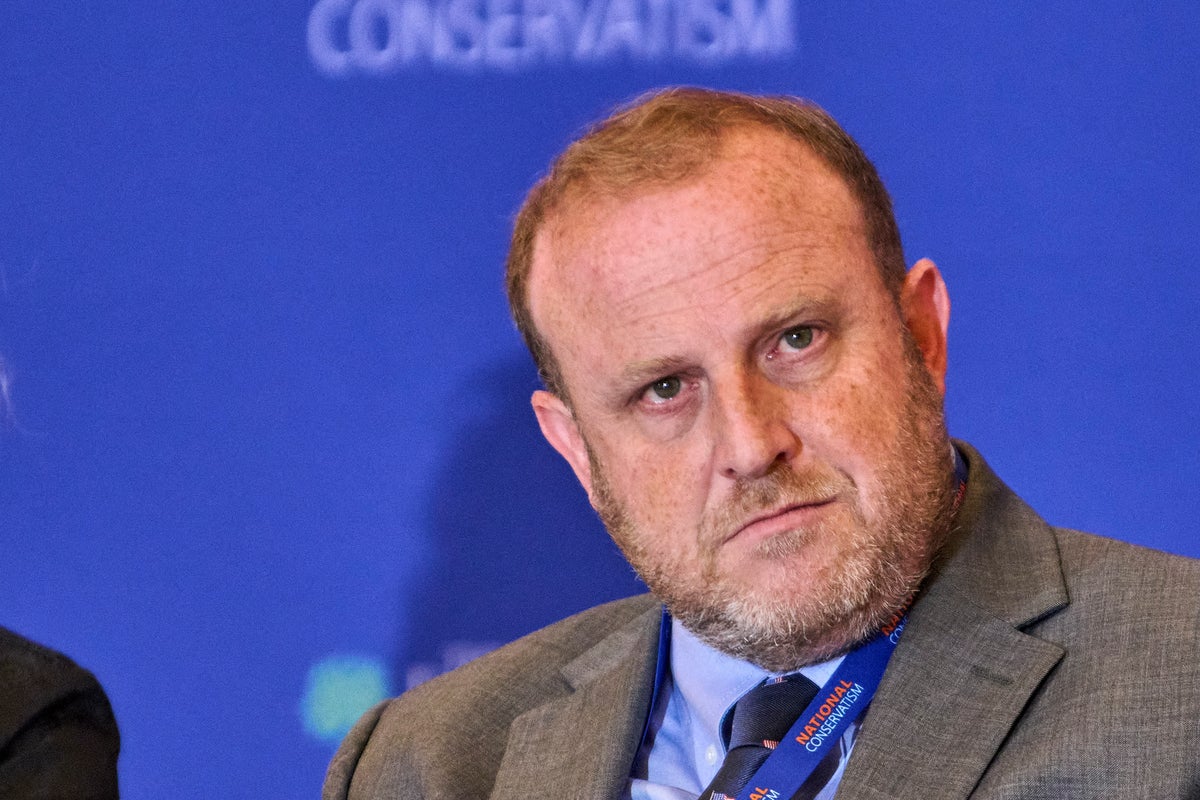
Jeremy Carl, a nominee for the State Department, quietly deleted thousands of inflammatory tweets as Republicans demand Democrats tone down the political rhetoric in the wake of Charlie Kirk’s assassination.
Carl, a senior fellow at the Claremont Institute who served as Deputy Assistant Secretary of the Interior during the first Trump administration, deleted at least 5,000 tweets from his account on X, CNN first reported. Many of these deleted posts can still be seen in the internet archive, the Wayback Machine.
President Donald Trump nominated Carl in January to serve as the Assistant Secretary of State for the International Organizations. The Senate has not yet confirmed Carl. The posts were deleted at some point before his nomination, CNN reported.
This tranche of his removed tweets included posts calling for political retribution, or sometimes, violence.
Some labeled January 6 Capitol rioters as “political prisoners,” another suggested Joe Biden should be imprisoned, and one called for a political opponent to be executed.
“If the U.S. were a serious nation,” American Federation of Teachers President Randi Weingarten would be “tried for crimes against America’s children and would get the death penalty,” he wrote in April 2023.
After reaching out to Carl for comment, a spokesperson for the State Department told CNN: “He’s never called for political violence. We look forward to Jeremy Carl’s contributions in support of the America First foreign policy agenda where he will ensure we are bringing international organizations back to their core mandates.”
The Independent has asked Carl for comment.
In one post from June 2021, Missouri Democratic Rep. Cori Bush urged people to remember on Juneteenth that “incarcerated Black people are still in bondage.”
Carl replied that he believed there was no chance of “peaceful coexistence” with Democrats: “There is no ‘peaceful coexistence’ we are going to have when our opposition is led by people like this. We either win or die.”
After several members of the Proud Boys, a far-right group, were convicted in May 2023, Carl remarked: “I would rather be a black man on trial for the assault of a white man in 1930s rural Mississippi than I would be a right-winger in DC today on trial for political crimes.”
The discovery of Carl’s inflammatory social media posts comes in the wake of Kirk’s assassination on September 10 during a speaking engagement in Utah. Authorities have accused Tyler Robinson, 22, of killing Kirk. He has not yet made a plea.
Hours after Kirk died, the president said in a video message: “For years, those on the radical left have compared wonderful Americans like Charlie to Nazis and the world’s worst mass murderers and criminals. This kind of rhetoric is directly responsible for the terrorism that we’re seeing in our country today, and it must stop right now.”
Vice President JD Vance, while hosting an episode of “The Charlie Kirk Show” earlier this month, baselessly claimed that “the data is clear” that “people on the left are much likelier to defend and celebrate political violence.”
Attorney General Pam Bondi blamed “left-wing radicals” for Kirk’s killing, adding “they will be held accountable.”
Data on the matter is mixed.
Research from libertarian think tank Cato Institute this month found that since 2020, right-wing terrorists account for 54 percent of the 81 people who have been killed as a result of political violence. That compares against the 21 percent who were killed by Islamist fundamentalists and 22 percent who were killed by left-wing activists.
Separately, research from the Center for Strategic and International Studies suggests left-wing violence has risen in the last 10 years, “particularly since President Donald Trump’s rise to political prominence in 2016, although it has risen from very low levels and remains much lower than historical levels of violence carried out by right-wing and jihadist attackers,” the analysis states.
This year marks the first time in more than three decades that left-wing attacks outnumber those from the far right, researchers found.
After Kirk’s killing, 79 percent of voters say the U.S. is in a political crisis, while 18 percent say it is not, according to a Quinnipiac University poll.
“The Kirk assassination lays bare raw, bipartisan concerns about where the country is headed,” polling analyst Tim Malloy said.
